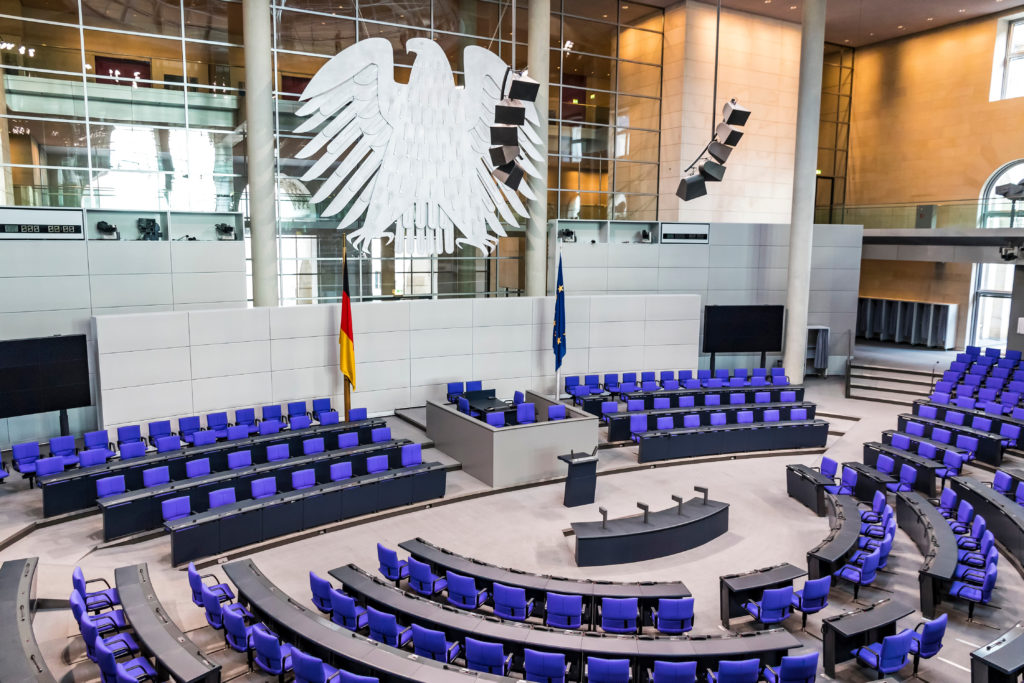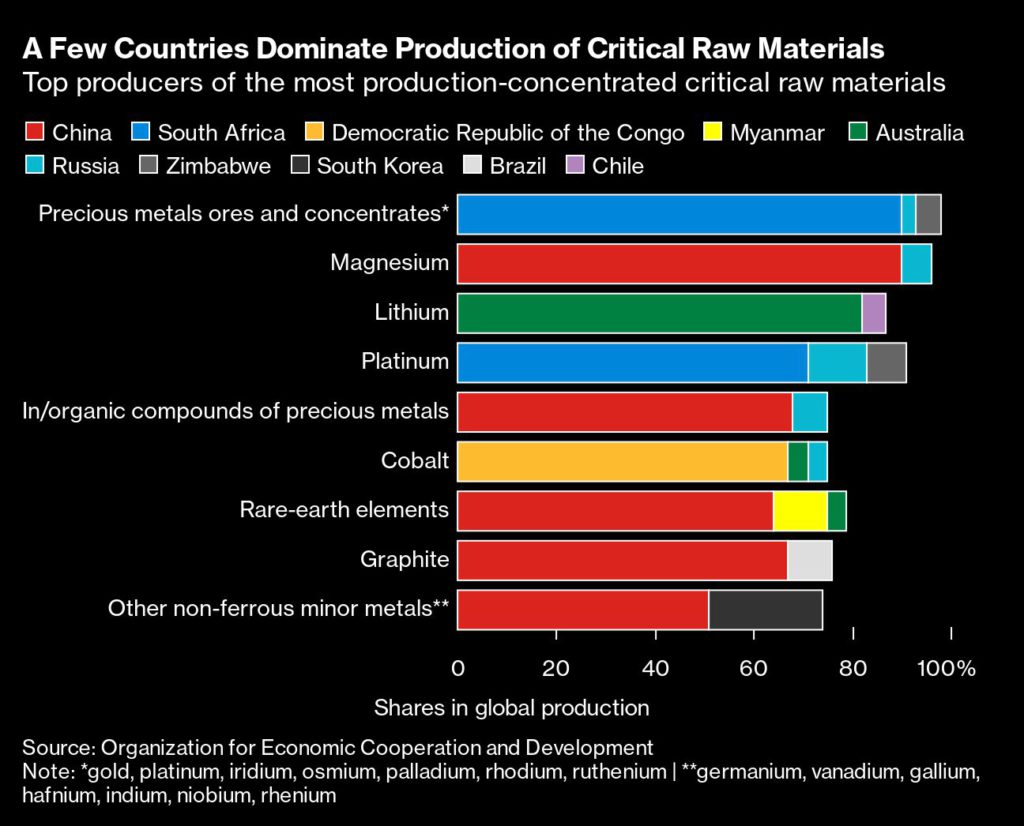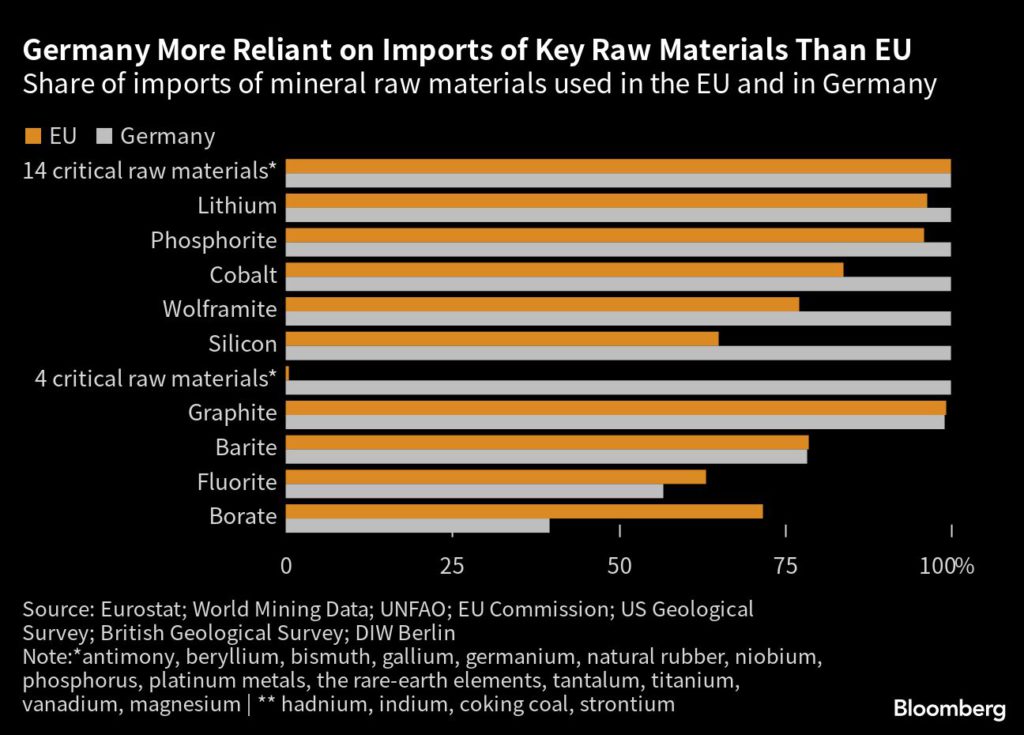
The German government plans to set up a state fund worth up to €2 billion ($2.2 billion) that will support mining of raw materials critical to the nation’s green transition, with the aim of securing access and cutting reliance on China.
The new financing vehicle could start next year if the ruling coalition agrees on the funding, according to people familiar with the matter, and will be equipped with funds between €1 billion and €2 billion.
The pivotal role of raw materials such as cobalt, copper, lithium, silicon and rare earth metals in producing everything from wind turbines to electric-vehicle batteries is driving efforts to guarantee supplies across the globe. Germany relies on imports for over 90% of crucial commodities, according to research by think tank DIW Berlin, with China leading the the way in supplying many important inputs.

After Germany’s dependence on Russia for natural gas became a painful liability following the invasion of Ukraine, officials in Europe’s largest economy have started to view supply chains and raw materials increasingly as a matter of national security.
A spokesperson for the Economy Ministry confirmed it is working on “a raw materials fund to support raw materials projects at home and abroad,” but declined to comment on details. A Finance Ministry spokesperson said they weren’t aware of the discussions.
The cost of building a new mining project can easily run into billions of dollars, and European companies have bemoaned a lack of subsidies similar to the US Inflation Reduction Act, which provides $40 billion in loan guarantees for critical mineral and clean energy projects. Establishing a domestic support mechanism could help spur investment in the sector.
The EU is looking to boost domestic refining, processing and recycling of critical raw materials by speeding up permitting and opening up new sources of funding. It’s also negotiating a deal with Washington in a bid to reduce dependence on China.
While it’s not yet clear how exactly Germany will utilize the state fund if it’s created, it could take a cue from Japan, where Group of Seven energy and environment ministers spent the past weekend discussing energy transition plans and access to raw materials.
State-owned company Japan Organization for Metals and Energy Security invests in the storage of raw materials, helps to explore reserves, provides loans and guarantees for commodity companies and also buys stakes in them directly.
While plans for a commodity-focused state fund are advanced, whether it can actually begin its work next year depends on the government finding the financial means for it, according to people familiar with the discussions, who asked not to be named because the discussions are private.

Finance Minister Christian Lindner is determined to return the country to a balanced budget after years of crisis spending, and the distribution of funds for 2024 is currently the subject of tough negotiations between the coalition partners. While Social Democratic Chancellor Olaf Scholz and the Green Economy Minister Robert Habeck support the fund, Lindner’s Free Democrats have yet to be convinced, the people said.
(By Kamil Kowalcze and Michael Nienaber, with assistance from Mark Burton)
Comments